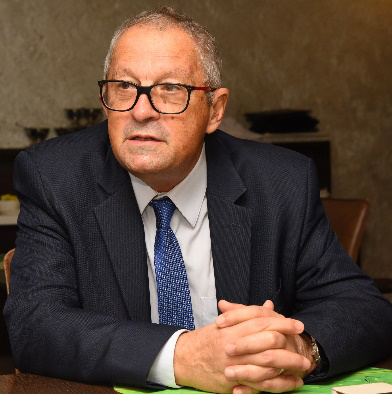讲座题目:Autonomous Systems–A Rigorous Architectural Characterization 主讲人:Joseph Sifakis 开始时间:2019-05-20 14:00:00 讲座地址:中北校区科学会堂 主办单位:计算机科学与软件工程学院 报告人简介:
Joseph Sifakis is Emeritus Senior CNRS Researcher at Verimag. His current research interests cover fundamental and applied aspects of system design. The main focus of his work is on the formalization of system design as a process leading from given requirements to trustworthy, optimized and correct-by-construction implementations. Joseph Sifakis has been a full professor at Ecole Polytechnique Fédérale de Lausanne (EPFL) for the period 2011-2016. He is the founder of the Verimag laboratory in Grenoble, which he directed for 13 years.In 2007, he received the Turing Award for his contribution to the theory and application of model checking, the most widely used system verification technique today. Joseph Sifakis is a member of the French Academy of Sciences, a member of the French National Academy of Engineering, a member of Academia Europea, a member of the American Academy of Arts and Sciences, and a member of the National Academy of Engineering. He is a Grand Officer of the French National Order of Merit, a Commander of the French Legion of Honor. He has received the Leonardo da Vinci Medal in 2012. 报告内容: 当今的物联网愿景越来越注重智能服务和系统的集成,自主性是其中的关键。如何构造复杂开放可信的自主系统是该愿景对我们提出的挑战:我们缺乏一个严谨通用的语义框架来描述自主系统。目前,对自主系统的主要特征还存在诸多争议。通过文献调研,我们发现大量与自主相关的术语存在误解,如“自恢复”、“自优化”、“自保护”、“自认知”、“自组织”等等。值得关注的是,当前针对自主汽车的争论主要集中在人工智能和学习算法上,而忽略了与之同等重要的自主系统设计相关的其他问题。 自主系统涉及一系列在共同环境下合作的智能体,他们的合作行为能够达成某个全局目标。我们提出了一个通用的计算模型,将系统架构模型和智能体模型结合起来。架构模型能够描述动态重构的组件之间的多模式协作。智能体模型包含五个交互模块,各自实现了感知、反馈、目标管理、计划和自适应等关键特征。该模型确立了自主复杂度的概念,以表征构建自主系统所特有的难度。 我们强调自主系统的主要特点是他们处理知识的能力和对环境变化的适应能力。我们得出的主要结论是自主性应当与功能相关联而不是与特定的技术相关联。自主性是一种广泛的智能,可信的最优的自主系统的构造问题远远超出了人工智能的范畴。 |


